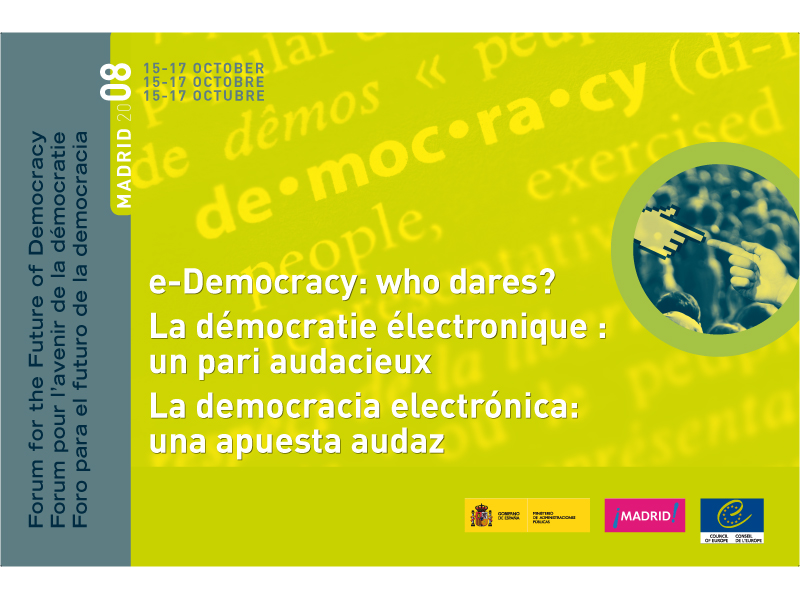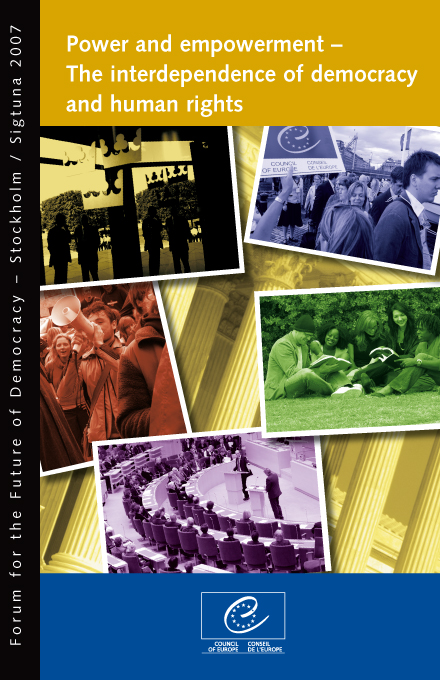Forum for the Future of Democracy 2011
‘The Interdependence of Democracy and Social Cohesion’
Panel debate
‘Fighting the crisis without undermining social cohesion: can Europe meet the challenge?’
Ms Sotiroula CHARALAMBOUS,
Minister of Labour and Social Insurance, Cyprus
I will start by saying a few words about social cohesion. In very simple terms, social cohesion is what binds people together. It is an ongoing process of developing a society of shared values, shared challenges, equal opportunities and active citizenship. A society in which all people have access to fundamental social and economic rights without discrimination, accept responsibility for one another and respect diversity.
The economic crisis is indeed a challenge to social cohesion and it is accompanied by other challenges that have been well identified in the Council of Europe High-Level Task Force Report1. The main challenges to social cohesion identified in the Report are:
· Globalization,
· Demographic change,
· Greater migration and cultural diversity,
· Political changes, and
· Economic and social change.
Social cohesion is a fundamental determinant of whether people will benefit from globalisation and changes and be protected from the risks associated with them.
So how can we fight the crisis without undermining social cohesion?
In my view, it is important to firstly change the outdated view that social policies are limited to measures for the protection of the most vulnerable and are a drain on the economy. Social policies must be perceived as a means of prevention, welfare, social cohesion, productivity and economic growth. Effective social policies give rise to economic benefits. As mentioned in a relevant Parliamentary Assembly Report2: countries that have strong and efficiently run social and health protection systems have valuable inbuilt mechanisms to stabilise their economies and address the social impact of the crisis.
At the same time, employment is an essential precondition of social cohesion. Access to employment is not only a means of prevention, economic growth and productivity but also a key route out of poverty and social exclusion. Therefore, employment policies should also focus on enhancing conditions of social cohesion by:
· Safeguarding the fundamental rights of employees and the quality of work, as defined in instruments introduced by the ILO, such as the Decent Work Agenda,
· Strengthening infrastructures and improving skills, and
· Providing incentives and counseling, with a view to facilitating the employment of persons at risk of social exclusion.
We must not fall into the trap of applying easy solutions through restricting social spending to cope with the urgent effects of the crisis. In reality, these solutions will not only harm social cohesion but also reduce the capacity of citizens to function as active economic units. We must safeguard social cohesion in the short and the long term and for this we must promote:
· Positive interactions between employment, economic and social policies,
· Political reflection, synergies and commitment to ensure social justice and human rights, and
· Good governance and the active involvement of all stakeholders.
Citizen participation, social dialogue and partnerships between authorities, the social partners and civil society are essential dimensions of social cohesion. As mentioned in the Council of Europe Revised Strategy for Social Cohesion, “the capacity of a society to ensure the welfare of all must be seen as a responsibility for all”. The value of participation is that it enables members of society to contribute to and influence both the development process and decision-making in matters that concern them. It is a tangible way of making people feel that they are an important part of society.
At the European level, the roles of the Council of Europe and the European Union are pivotal. The Council of Europe has done much to promote its fundamental values for human rights, democracy and the rule of law – all crucial elements of social cohesion – and to develop social cohesion policies. The Revised Social Cohesion Strategy is an excellent reference framework. Building on the acquis of the Council of Europe, the Task Force Report sets out a clear set of specific actions for the promotion of social cohesion. Professor Mary Daly will, no doubt, expand on these actions. The theme of the 2011 Forum is, of course, a manifestation of one of the proposed actions.
Similarly, the European Union 2020 Strategy presents real opportunities for enhancing social cohesion. The explicit targets for increasing employment and reducing poverty and social exclusion are particularly relevant, as are the flagship initiatives under the Inclusive Growth Strand of the Strategy. Specifically:
· The “Agenda for New Skills and Jobs” Flagship Initiative, which aims to raise employment levels, sets out specific actions for Member States,
· The Flagship Initiative on “The European Platform against Poverty”, refers to the need for Member States to ensure adequate income support and access to health and social services for groups at particular risk, and
· Employment Guideline 10 on “Promoting social inclusion and combating poverty” outlines a range of actions, including empowering people at risk of social exclusion, promoting their labour market participation and ensuring income security and access to services. .
In my opening statement I have touched on a number of issues pertaining to social cohesion and I am sure that they will be rigorously debated by the speakers on our panel today.







 Print
Print  Send
Send